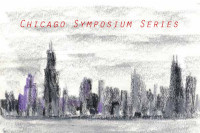University of Illinois at Chicago
This talk will review, from the perspective of a university faculty member engaged in outreach to teachers and classrooms, the last fifteen years of standards-based science instruction in Illinois high schools. During this time, state and local (especially Chicago) districts have attempted to work with no fewer than four major systems standards: the Chicago Academic Standards (and the associated CASE exams), the Illinois Learning Standards (and the associated Illinois Assessment Framework for the Prairie State Achievement Exam), the College Readiness Standards (and the ACT test), and finally the Next Generation Science Standards. The connections and disconnections within these systems will be noted, as will the shifts that occurred as the focus shifted with the possibly complementary axes of "content" and "inquiry."
Donald J. Wink is Professor and Director of Undergraduate Studies in the Department of Chemistry at the University of Illinois at Chicago. He is also a member of the UIC Learning Sciences Research Institute and Director of Graduate Studies for its Ph.D. program. He was trained in chemistry at the University of Chicago (S.B.) and at Harvard University (Ph.D.) He has worked on curriculum projects involving preparatory chemistry, project-based general chemistry labs, integrated science for elementary education majors, and the development of methods for course-based undergraduate research. His K–12 work includes an NSF GK–12 project for intervention in schools and work on a comprehensive, district-funded curriculum and professional development project. He was also the PI of a NSF Math Science Partnership project, The Chicago Transformation Teacher Institute. Currently he coleads PD efforts supported by the State of Illinois and the Generation All project of the Chicago Public Schools, the Chicago Teachers Union, and the Chicago Community Trust.

